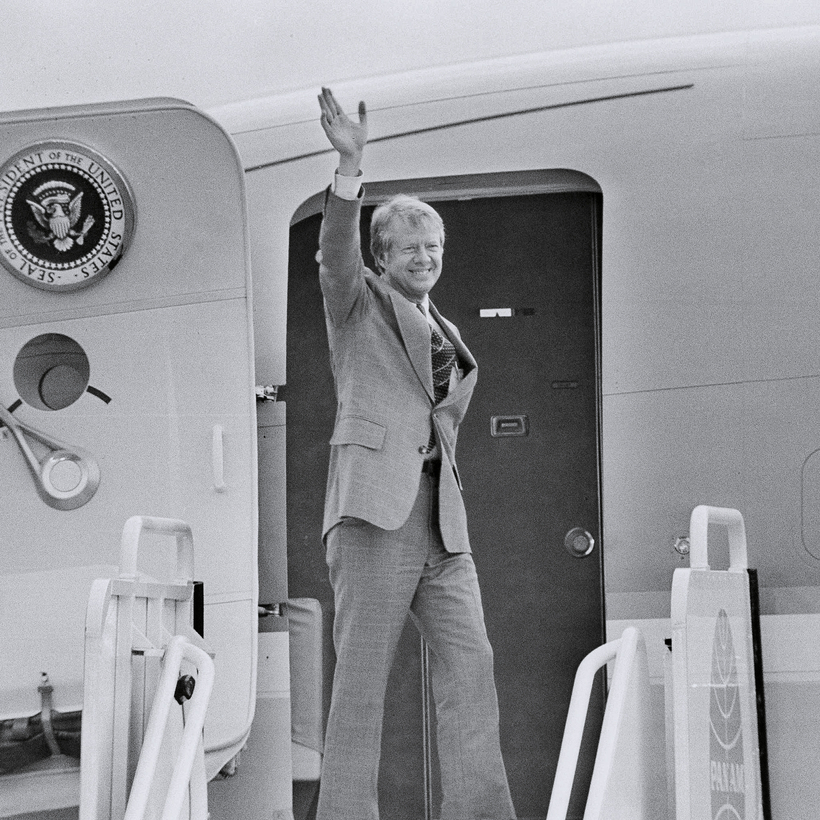Dead is better. That is the opinion of most working biographers when asked whether it is easier to write about a living subject or the long departed. In my 40-year career as a biographer, I have covered both the living and the dead—John J. McCloy, McGeorge Bundy, J. Robert Oppenheimer, Robert Ames—and twice I have started my research with a subject who was very much alive, but who, by the time I was finished, was dead (McCloy and Bundy).
The living invariably manufacture obstacles. Irrationally, they go by the assumption that it is their life, so they try in some way to keep the biographer on a leash. My first subject, McCloy—the powerful but secretive Wall Street lawyer—actually tried to persuade my editor to cancel the contract.
Six years ago, I informed former president Jimmy Carter that I had signed a contract with Crown to write his biography. A month later, he was diagnosed with brain cancer, and I thought, “Well, I’ll never see him.” But Carter miraculously survived, and we eventually had a series of interviews.
He was not terribly helpful, if only because he’s not the kind of man who can waste time wandering down memory lane. Even at 91, Carter was intensely focused on his work with the Carter Center, projects that include wiping out Guinea-worm disease in Africa and monitoring the Syrian civil war.
I tried hard to get him to recall colorful anecdotes from his boyhood or White House years. I’d try to jog his memory with White House memos dug out of his presidential library. But usually he had little to add.
Carter had kept a 5,000-page diary during his presidential years, and he’d published about 20 percent of those diary entries. Naturally, I asked for permission to see the full diary. He gently declined, explaining that it still had to be reviewed for classified material—and too many people mentioned in it were still alive. The full diary will eventually be opened in the Carter Presidential Library, but that will be after he is gone, and long after my biography publishes, this week.
Jimmy Carter is not the kind of man who can waste time wandering down memory lane.
As I said, dead is better. But it is also true that the living sometimes open closet doors that the dead cannot. In one of my early interviews with Carter, I asked him about Charlie Kirbo, his personal lawyer of many decades and perhaps his most trusted confidant. Kirbo died in 1996, but I knew that he had recorded an oral-history interview years earlier in which he described writing hundreds of personal memos to Carter during his White House years. I told Carter that I had found very few of these memos in his presidential archives. Carter expressed surprise and confirmed, “Charlie wrote me all the time.” So where were the Kirbo papers? This genuinely piqued his interest, and he promised to look into the matter.
Three days later, I received a phone call from Dr. Steve Hochman, Carter’s longtime personal aide. Hochman said they had found four boxes of Kirbo’s papers in his widow’s attic. Six months later, I was escorted into a back room of the Carter library. Lying on the floor were all four boxes, containing hundreds of letters and confidential memorandums. No other historian had ever seen these papers, many of them dating back to 1962, when Kirbo rescued Carter’s early political career by proving that his state-senate opponent had stuffed a ballot box in a Georgia county and stolen the election.
The Kirbo papers proved to be a biographer’s treasure. They gave my presidential biography a unique authenticity. Kirbo told Carter how to run as a populist: “Remain moderate and progressive,” he told Carter in one memo, and, therefore, “attractive” to “anyone who is … interested in you on the national ticket.”
Dead is better. But it is also true that the living sometimes open closet doors that the dead cannot.
Kirbo was the only member of Carter’s inner circle who could reprimand the president. “I usually know,” Kirbo said, “what he’s going to do before he does it.” But Kirbo was always discreet. “Kirbo speaks only to Carter,” quipped an aide, “and Carter speaks only to God.”
Charlie Kirbo is not a name known to most Americans. In his time, Kirbo was known as an influential political fixer who spoke with a molasses-thick southern-Georgia drawl. Friends often compared him to Atticus Finch, the trial lawyer in To Kill a Mockingbird, with his calm demeanor and measured gravitas. Kirbo’s relationship with Carter turns out to explain much about Carter himself.
As a biographer, I will forever be grateful to the former president for finding Kirbo’s papers and allowing me to quote freely from them. Sometimes, writing about the living is better.
Kai Bird is a Pulitzer Prize–winning historian and author of biographies of John J. McCloy, McGeorge Bundy, J. Robert Oppenheimer, and Robert Ames. His latest, The Outlier: The Unfinished Presidency of Jimmy Carter, is out now from Crown

